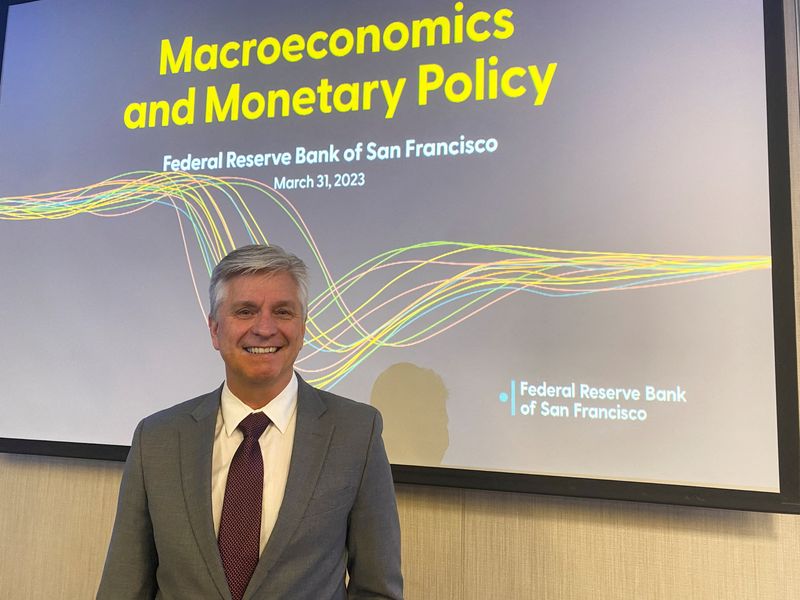By Howard Schneider
(Reuters) - U.S. Federal Reserve Governor Christopher Waller on Wednesday said higher market interest rates may help the Fed slow inflation, and let the central bank "watch and see" if its own policy rate needs to rise again or not.
Waller, who has been among the most vocal advocates for higher interest rates to fight inflation, said price data seemed to now be moving back towards the Fed's 2% target, with financial markets adding further credit tightening of their own.
"We're in this position where we kind of watch and see what happens on rates," said Waller, who was interviewed by former Republican House Speaker and Wisconsin Congressman Paul Ryan at a high-profile GOP event in Utah. "The financial markets are tightening up and they are going to do some of the work for us...We are just keeping a very close eye on that. We will see how those higher rates feed into what we do on policy in the coming months."
Waller's comments added weight to similar statements this week by Fed Vice Chair Philip Jefferson and Dallas Fed President Lorie Logan. Since the Fed last raised its policy rate by a quarter of a percentage point in July, long-term rates on U.S. Treasury bonds have increased by around three-quarters of a percentage point - a change that gets quickly priced into consumer and business loans and could suppress spending, investment and prices.
Markets have been lowering expectations for any more Fed rate increases, with the chance of a move at the upcoming Oct. 31- Nov. 1 meeting now seen down to about 10% according to data from the CME Group's (NASDAQ:CME) FedWatch.
Bond markets may be raising rates on U.S. debt for a variety of reasons, Waller said, including stronger than anticipated U.S. economic growth or - less benign - concerns over rising federal deficits.
"It could be the economy is looking better. We have signaled we would keep rates higher for longer so that is going to push up longer-term yields...But clearly (Treasury) issuance has got to have an impact," said Waller, referring to current deficit levels as likely not sustainable.

Still, Waller offered some of the most optimistic reads yet on the path of inflation. Over the past three months, he said, one important measure of the underlying pace of price increases has averaged right at 2%. The latest data on another inflation measure, the Consumer Price Index, will be released on Thursday. Analysts polled by Reuters expect the report to show CPI inflation moderating in September.
"We're finally getting very good inflation data," he said. "If this continues we're pretty much back to our target."